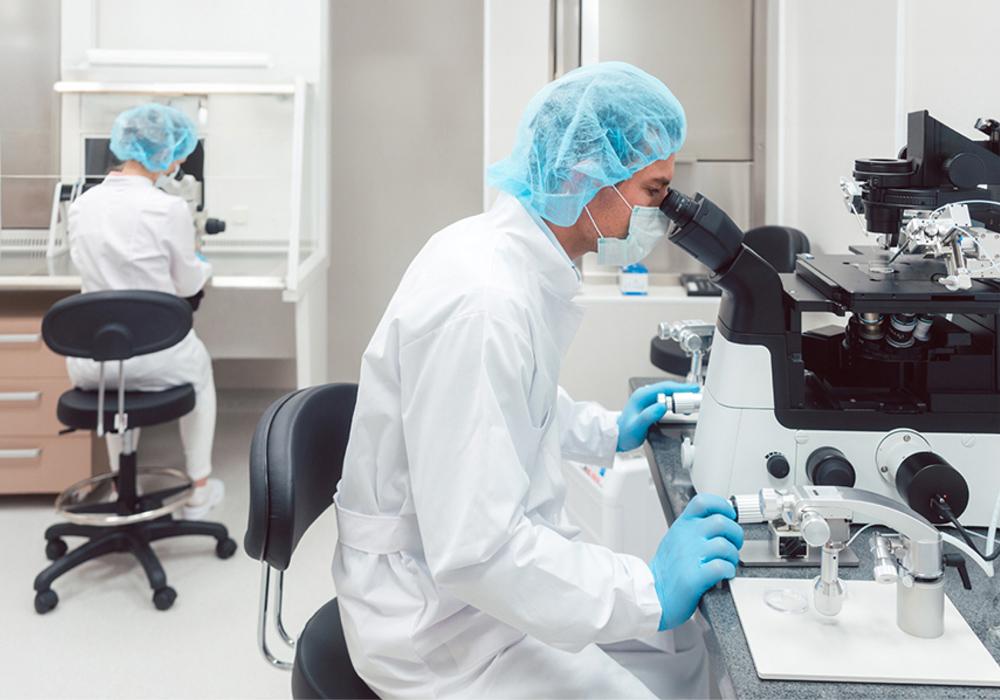If you’re considering fertility treatments at our First Fertility locations throughout the United States, such as in vitro fertilization, we may recommend preimplantation genetic testing. This testing, performed by our in-house embryologists, can determine if any of the embryos we’re monitoring for potential implantation may have genetic mutations that can lead to health issues, miscarriage, or implantation failure.

Preimplantation genetic testing (PGT) is a screening test performed on fertilized embryos to identify potential genetic abnormalities that may be present. These genetic abnormalities can include the number and arrangement of chromosomes an embryo has, which may lead to implantation failures or conditions such as Down Syndrome or Huntington’s Disease.
Your fertility specialist can recommend specific testing options according to your and your partner’s medical and family history. There are three common types of PGT, including:
PGT-A is a test that can identify if an embryo has a standard number of chromosomes. An embryo with too few or too many chromosomes can lead to miscarriage, failed implantation, and genetic conditions such as Down Syndrome.
PGT-M looks for specific gene mutations that the parents know they carry. Parents who are carriers can pass on potential genetic conditions to children, and this test identifies those genes in the embryo. Common disorders identified using PGT-M include:
PGT-SR looks for structural rearrangements in the chromosomes of the embryo. This test is often only performed if the parents have a known structural rearrangement. This structural rearrangement of chromosomes can lead to potential miscarriages.
PGT is not for everyone. Your fertility specialist may recommend PGT testing if you or your partner meet any of the following criteria:
Carrier screening tests are also available for you and your partner, which can inform you and your fertility specialist of any genetic conditions you may be a carrier for.
If you’re interested in learning more about preimplantation genetic testing, you can discuss it with your fertility specialist at a First Fertility location. Our fertility specialists across the country, from Connecticut to the Gulf Coast to New Orleans, LA, and Chicago, IL, are here to help you navigate fertility treatment and help you grow your family. Schedule an appointment at one of our locations near you today.